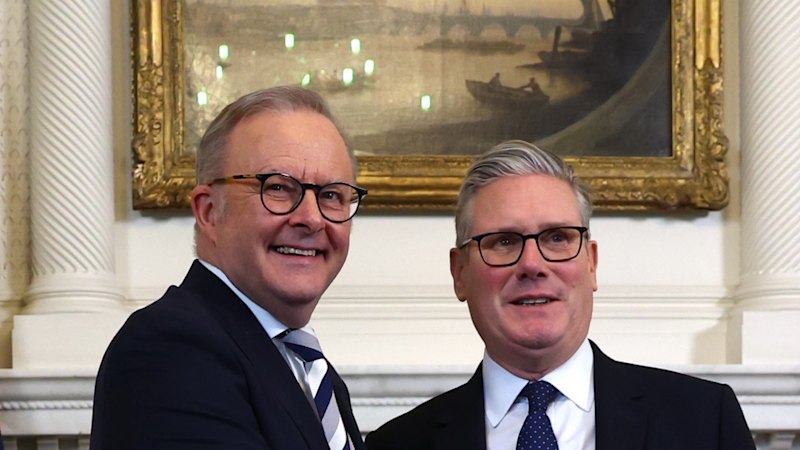
URGENT UPDATE: Political chaos unfolds in the UK as the Reform Party, led by former Brexit leader Nigel Farage, gains traction, potentially threatening the current government. In a striking new poll, the Reform Party could form a government if elections were held today, fueled by public dissatisfaction with immigration policies and economic stagnation.
Just hours ago, Prime Minister Keir Starmer faced mounting criticism at a summit in London as he attempted to address the future of progressive politics amidst a rising tide of populism. The Labour Party’s struggles following their 2024 general election victory are now overshadowed by Reform’s growing influence, which taps into widespread anger over illegal migration across the English Channel.
The core issue lies in the UK’s immigration management, a legacy of the Conservative Party’s failed policies. Since the 2016 Brexit referendum, which was largely driven by anti-immigration sentiment, the government has paradoxically allowed an influx of migrants from outside the EU, with over 750,000 arriving in the UK in 2022 alone. This influx has deeply disillusioned traditional conservative voters, many of whom now support the Reform Party.
Public frustration is further exacerbated by a stagnating economy, which has shown lackluster growth over the past fifteen years. Economic policies on both sides of the political spectrum have led to high public debt and low private sector investment. Migrants, who are essential to sectors like health and hospitality, are unjustly blamed for economic woes, including lax welfare rules that allow over 230,000 working-age men under 30 to live on disability benefits without job-seeking obligations.
The combination of uncontrolled migration and inadequate infrastructure to support new arrivals has created a “toxic brew” of discontent, giving the Reform Party the opportunity to exploit these sentiments. As dissatisfaction rises, the Conservatives find themselves at historic lows in public support.
Meanwhile, Australia’s Prime Minister Anthony Albanese highlighted the importance of strong border policies, which have helped prevent a similar anti-migration uprising. However, Albanese warns that complacency is not an option, especially given the recent strong turnout at the anti-immigration March for Australia, driven by genuine concerns over housing and infrastructure.
As the UK navigates these turbulent waters, experts argue that migration policy must align with broader economic strategies. Critics point to Australia’s higher-than-average immigration rates, which, although boosting GDP growth, may mask deeper issues like inadequate budget and regulatory reforms.
Looking ahead, the UK must reassess its immigration policies and economic strategies to regain public trust. A robust approach to skilled migration, aligned with genuine labor needs, could help foster a more prosperous economy and alleviate the mounting tensions surrounding immigration.
As the political landscape shifts rapidly, all eyes will be on the upcoming responses from both Starmer and Farage as they vie for the support of an increasingly restless electorate.






